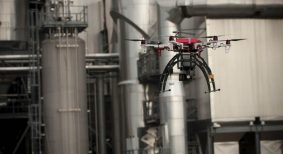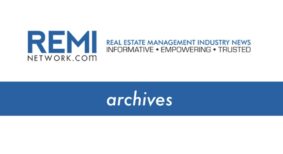Participants in last year’s Climate Reality Leadership Corps training session in Toronto were challenged to perform 10 acts of leadership by the summer of 2016. For Bala Gnanam, director of sustainable building operations and strategic partnerships with the Building Owners and Managers Association (BOMA) of Greater Toronto, steering his workplace to certified carbon neutral status now counts toward his tally of achievements.
BOMA Toronto was recently designated carbon neutral for 2015, becoming the world’s first BOMA chapter to formally gain that bragging right. However, the pioneers are hopeful it won’t be an exclusive club for long.
“Our intention is to challenge the other BOMAs to do the same,” Gnanam says. “It’s all about taking the leadership and leaving a mark that inspires people to do something.”
After BOMA Toronto’s board of directors and president, Susan Allen, enthusiastically endorsed the goal — “They didn’t hesitate. They said: Get it done,” Gnanam recalls — the first step was a greenhouse gas (GHG) inventory.
Working with the offset provider, Carbonzero, BOMA opted for the most comprehensive Scope 3 assessment of its operations. This accounts for direct emissions from the BOMA office site (the focus of Scope 1), indirect emissions from its electricity consumption (included in Scope 2), and other indirect emissions associated with the production and transportation of purchased materials and staff’s work-related commuting.
This is then balanced with registered offsets, largely from Canadian sources, which are verified to apply exclusively to one purchaser’s emissions, one-time only — a critical condition for ensuring a real carbon reduction.
“We looked at every aspect of our business operations and, based on established international standards and a location factor, they assign carbon emissions quantities to these activities so they can be adequately offset,” Gnanam explains. “It’s quite a rigorous process, but in many ways, it’s the easiest part. We will be going beyond just buying offsets so that we’ll be putting in operational policies and procedures aligned with carbon neutral outcomes.”
As that occurs, BOMA Toronto should need to purchase fewer offsets to achieve carbon neutral status or, Gnanam envisions, it could purchase the same benchmark amount every year so that it would be carbon negative. It will also record and evaluate its carbon neutral process in an effort to devise best practices for commercial tenants in general.
“It will be a living document for us, but it will also be a guide for others,” Gnanam says. That, too, is part of the Climate Reality Leadership mandate, made clear at the training session occurring in conjunction with last July’s Climate Summit of the Americas.
“We don’t want to buy-offsets our way into being green,” he asserts. “We need to walk the talk.”






